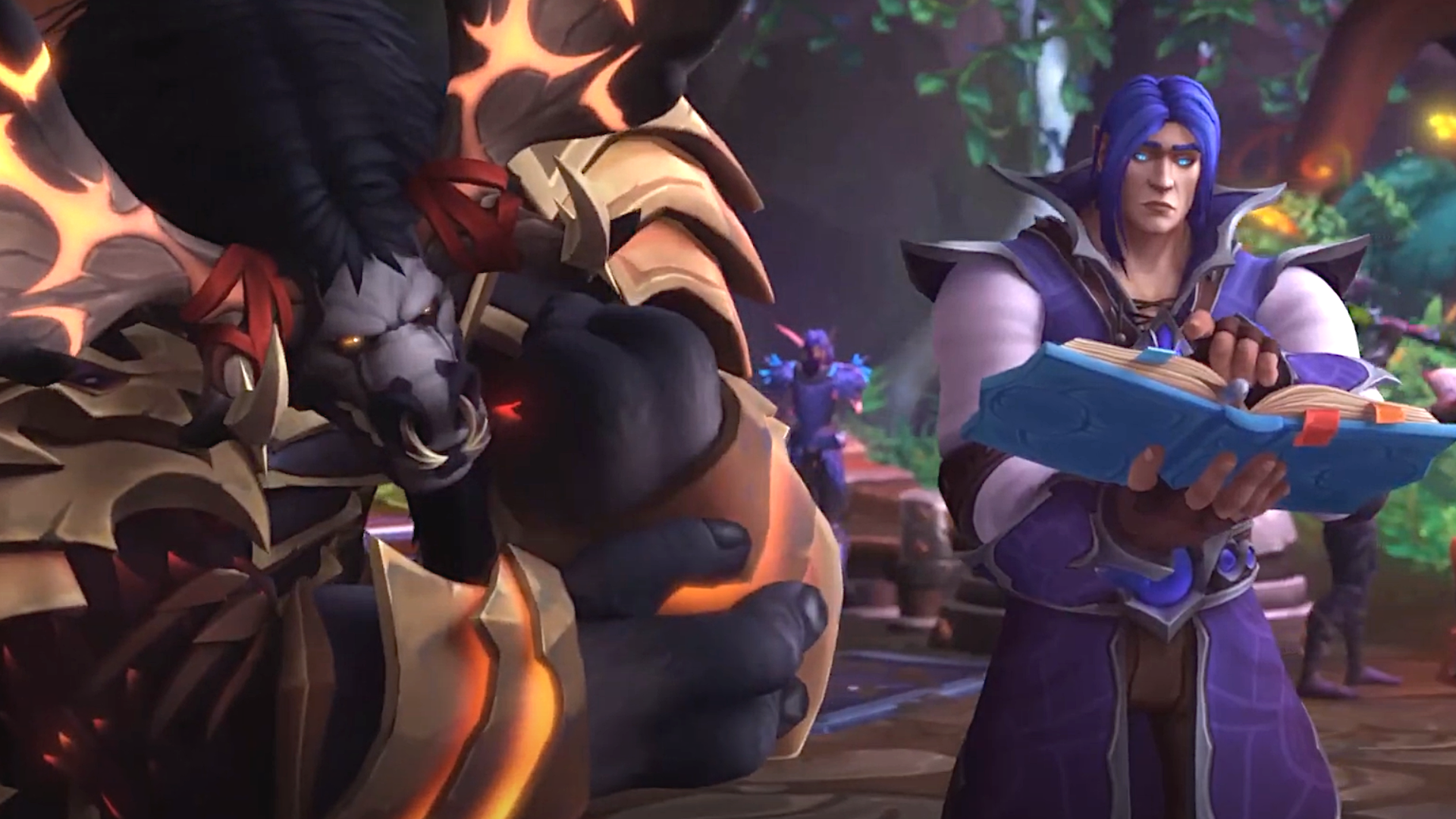Elden Ring Nightreign's relic system could learn a lot from MMOs like World of Warcraft, which figured out pure RNG loot sucks years ago
We don't have to stay in gamba purgatory. There's a better way.

Has this happened to you? You've just finished a kickass Elden Ring Nightreign run. You and your buds—or two strangers—were in top form. Barely any deaths, seven flasks in your pocket, level 15 next to your health bar, and weapons that type against the Nightlord's specific weakness.
You do the customary L1 spam as the victory screen displays, and then—trash. Trash, as far as the eye can see. One relic gives you damage up with three greataxes, improved throwing knife damage, and fire pots in inventory at the start of an expedition as some kind of cruel, cruel joke. You sell them all off, take your murk to the shop, and go gambling. Trash again.
I want to be clear—I'm not being hard on Elden Ring Nightreign, here. It's very clearly a big experiment, and FromSoftware's playing with a bunch of new toys. Given how new the studio is to the game of loot progression systems, I'm not expecting it to have everything figured out.
But as an MMO vet, I can't help but grind my teeth because, well. I've seen these mistakes play out a dozen times already. Elden Ring Nightreign, in its naivete, has walked straight into a common foible that tons of MMOs—and live-service games—have had to figure out the hard way: A little RNG keeps things lively, but purely RNG-dependent loot sucks.
Slot machines ain't it
World of Warcraft once had a system called Titanforging. Essentially, any bit of loot you got could be Warforged or Titanforged—a random percentage chance to bump up the item level of a piece of gear. On paper, as Blizzard explained back in 2019, this was meant to make solid gear upgrades available from lower-tier content.

However, quoting an explainer blog from when the system was removed: "Progression feels less rewarding, as players killing a raid boss on a new difficulty for the first time often disenchant much of the loot because they have equal or better Warforged items from lower difficulties or other sources.
"In addition, the feeling that a given item could have Warforged more and been even better can leave a sense of disappointment at what should have been a clear reward moment. And the sense that these systems are out of players’ direct control makes it harder to work towards a clear goal or state of completion."
Keep up to date with the most important stories and the best deals, as picked by the PC Gamer team.
Sound familiar? You could swap a few nouns out, here, and it'd encapsulate all of my problems with Nightreign's relic system. Getting new relics should be exciting, but I sell (disenchant) most of them. Even when I get a relic with two solid passives, the fact it could've had three leaves a sour taste in my mouth. And both of these issues are very much out of my "direct control".
That's not to say RNG is inherently bad—Diablo 4 is another Blizzard-made game that's almost entirely dependent on it. But you'll notice that, even there, players still get to have a hand on the lever. You can socket items with gems or, crucially, temper or masterwork gear to adjust or improve affixes.
Every game that comes out with crushing RNG eventually learns to shift things towards the side of player control."
I wouldn't dare call this system flawless, and I'm sure you Diablo 4 players have a thousand gripes you're keen to tell me about. But it's very telling that Blizzard's still made a key effort to give you some control. You can still turn an item with one or two stats into a solid progression bump while you chase down that god roll or unique.
Diablo 4 isn't a masterclass in live service design or anything, but there's a reason these mechanics are here, and why tons of ARPGs like Path of Exile follow in their footsteps. Or, in the case of PoE2, forget to make loot rewarding and suffer harsh feedback because of it.
A more recent, co-op game example of this is Darktide. It came out with roll-dependent loot, where you could only reroll certain passives a number of times before having to throw those items away. After two years and a bunch of player feedback, that all changed.
Every game that comes out with crushing loot RNG eventually learns to shift things towards the side of player control. There's always a token, tomestone, badge, or doohickey that lets you acquire it incrementally—or some way to turn your bad luck good: an imperfect item into a usable one. It's this kind of system that Nightreign definitely needs.
Learn from the past
I think my gentle frustration with Nightreign is that, while it's a blast to play, its rewards structure hasn't looked to the mistakes of other games—lessons learned in pitched combat with angry playerbases lie completely unutilised. I don't want Nightreign to have a battle pass or anything, but it could copy some of Fatshark or Blizzard's homework.

Recycling a relic could, for instance, have a chance of giving you one of its passives—to then be placed on a relic of your choice for a hefty murk cost. I reckon this ought to be quite expensive, given we're talking postgame build-tweaking, but having an end goal would do a lot to keep me playing.
You could also pay a hefty murk price to swap a relic's colour—got a list of passives that don't fit in your current urn? Drop a cool 20,000 Limveld bux on it, and it'll work just fine with your new build.
Neither of these systems would take away from the sheer and sudden excitement you get from rolling a relic with the perfect passives—since that'd still save you a massive time sink—but it'd stop certain runs from feeling like a massive waste of time.
I want to make the perfect Executor build now I'm done slaying all the Nightlords, but in order to do that, I've got a potentially endless session at the merchant jar bazaar slot machine stretching out before me. I'm not afraid of a grind, but I am afraid of perpetual gamba limbo. One's a mountain, the other's purgatory, and it doesn't have to be this way.

Harvey's history with games started when he first begged his parents for a World of Warcraft subscription aged 12, though he's since been cursed with Final Fantasy 14-brain and a huge crush on G'raha Tia. He made his start as a freelancer, writing for websites like Techradar, The Escapist, Dicebreaker, The Gamer, Into the Spine—and of course, PC Gamer. He'll sink his teeth into anything that looks interesting, though he has a soft spot for RPGs, soulslikes, roguelikes, deckbuilders, MMOs, and weird indie titles. He also plays a shelf load of TTRPGs in his offline time. Don't ask him what his favourite system is, he has too many.
You must confirm your public display name before commenting
Please logout and then login again, you will then be prompted to enter your display name.


